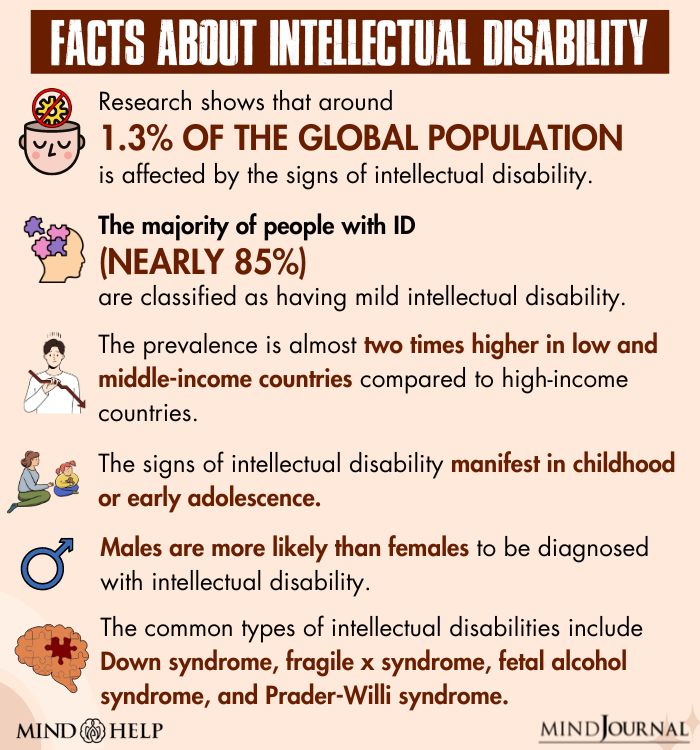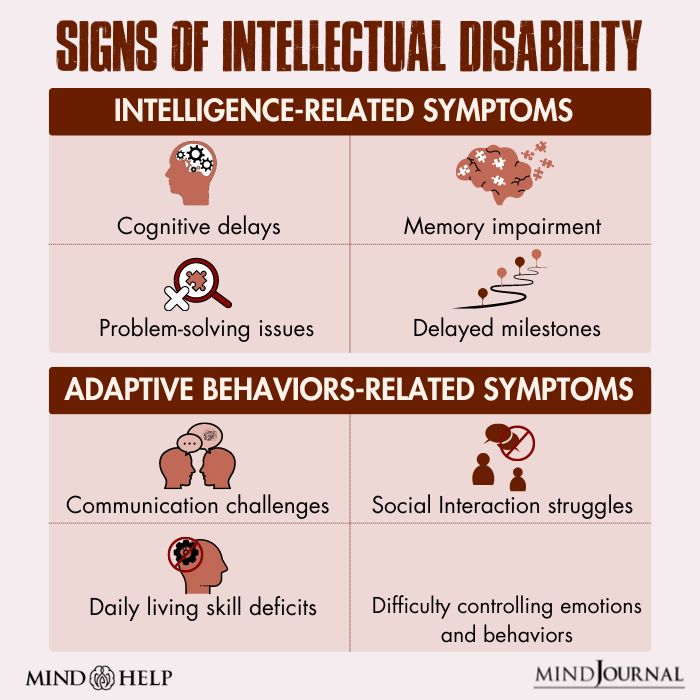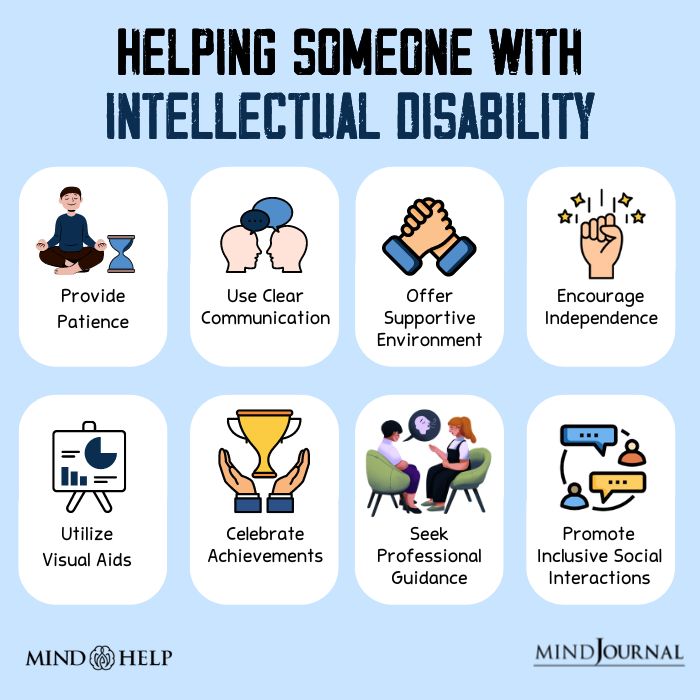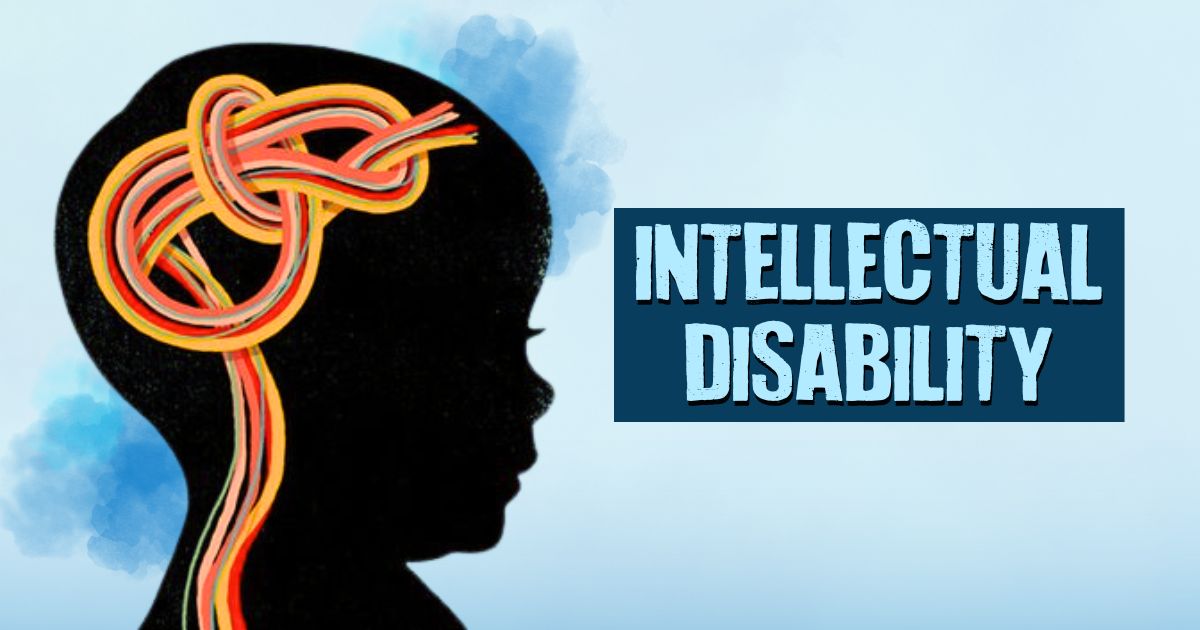Intellectual disability is referred to as certain limitations in a person’s cognitive, mental, and social abilities. Popularly, it is taken to imply below average intelligence and set of life skills present before the age of 18 years.
What Is Intellectual Disability?
Intellectual disability (ID) is a cognitive condition 1 Lee, K., Cascella, M., & Marwaha, R. (2020). Intellectual Disability. PubMed; StatPearls Publishing. Available from: https://www.ncbi.nlm.nih.gov/books/NBK547654/ comprising limited intellectual functioning and impaired adaptive skills. This disorder is associated with impairments in learning, reasoning, communicating, and daily life activities. The Diagnostic and Statistical Manual of Mental Disorders (DSM-5) categorizes ID with neuro-developmental disorders that begin in childhood and are characterized by intellectual difficulties.
Intellectual disability can range from mild to profound impairments widely. The limitations associated with the specific types of intellectual disability manifest within the developmental stages, particularly during childhood or early adolescence. The type of limitations defines a person’s educational achievement, job prospects, and general wellbeing, as well as the nature of continuous support necessary to facilitate proper functioning.

Signs Of Intellectual Disability
The common 2 Boat, T. F., & Wu, J. T. (2015, October 28). Clinical Characteristics of Intellectual Disabilities. Nih.gov; National Academies Press (US). Available from: https://www.ncbi.nlm.nih.gov/books/NBK332877/ signs of intellectual disability include:
- Significant delay in achieving milestones, such as walking and talking.
- Cognitive challenges linked to memory and problem-solving and decision-making skills.
- Communication issues, like poor articulation or vocabulary.
- Socialization and adaptive difficulties in daily life and activities.
- Attention deficiency and irritability.
- Difficulty and delays in fine and gross motor skill development.
- Learning disability, hindering academic and professional prospects.
Read More About Decision-Making Here

Intellectual Disability In Films
Intellectual disability and its unique challenges find occasional representation in films 3 K, L., M, C., & R, M. (2020, January 1). Intellectual Disability. PubMed. Available from: https://pubmed.ncbi.nlm.nih.gov/31613434/ . In the 1993 film What’s Eating Gilbert Grape, Leonardo DiCaprio’s Arnold “Arnie” Grape showcases the stigma surrounding intellectual disability. The 1994 film Forrest Gump shows Tom Hank essay the role of an intellectually disabled man navigating the challenges of life, love, and several professions. The 1999 film The Other Sister follows a young woman’s attempt to overcome her mental disability with determination and ambition.
On a slightly different note, the 1988 Rain Man features Dustin Hoffman as Raymond Babbitt, an autistic savant with exceptional memory skills. The film, besides highlighting one of the greatest psychiatric marvels of all time, provided insights into the ‘brighter side’ of the spectrum of intellectual abilities.
Different Levels Of Intellectual Disability
The different levels 4 Vasudevan, P., & Suri, M. (2017). A clinical approach to developmental delay and intellectual disability. Clinical medicine (London, England), 17(6), 558–561. https://doi.org/10.7861/clinmedicine.17-6-558 in the signs of intellectual disability include:
- Mild intellectual disability, involving learning practical life skills and achieving academic skills up to a sixth-grade level.
- Moderate intellectual disability, involving daily needs support for daily living, basic communication, and social skills.
- Severe intellectual disability, involving limited communication ability and requiring of professional assistance for daily activities.
- Profound intellectual disability, involving highly limited cognitive and adaptive abilities that require all-time care and support.
Types Of Intellectual Disability
The different 5 No items found – MeSH – NCBI. (n.d.). Www.ncbi.nlm.nih.gov. Retrieved December 14, 2023, from https://www.ncbi.nlm.nih.gov/mesh?Db=mesh&Cmd=DetailsSearch&Term=%22Intellectual+Disability%22%5BMeSH+Terms%5D types of intellectual disability include:
- Down Syndrome: Chromosomal condition causing developmental delays.
- Fragile X Syndrome: Genetic disorder affecting intellectual and behavioral development.
- Autism Spectrum Disorder (ASD): Neuro-developmental disorder impacting social interaction and communication.
- Williams Syndrome: Genetic condition leading to cognitive and developmental challenges.
- Cerebral Palsy: Motor impairment often associated with intellectual disability.
- Rett Syndrome: Rare genetic disorder affecting cognitive and motor functions.
- Prader-Willi Syndrome: Genetic disorder causing cognitive, behavioral, and physical issues.
What Causes Intellectual Disability?
The common causes 6 Merckx, N. L. L., & Van Esch, H. (2022). Human Brain Models of Intellectual Disability: Experimental Advances and Novelties. International journal of molecular sciences, 23(12), 6476. https://doi.org/10.3390/ijms23126476 behind the development of the signs of intellectual disability include:
- Genetic heritability 7 Rustom, H., Hassan Eltorki, Y., Adil Shah Khoodoruth, M., Abdallah, O., Al-Khuzaei, N., Iqbal, N., & Alabdulla, N. (2022). Genetic etiology of adult intellectual disability (ID) of unknown cause in Qatar: a retrospective study. Qatar medical journal, 2022(1), 26. https://doi.org/10.5339/qmj.2022.26
- A family history of intellectual and learning disability
- A family history of mental health disability and disorders
- Prenatal exposure to trauma, toxins, infections, or drugs during pregnancy.
- Perinatal complications like Rh isoimmunization, prematurity, and low birth weight.
- Genetic mutations, particularly chromosomal abnormalities
- Metabolic disorders like porphyria, diabetes, etc.
- Malnutrition during critical developmental periods.
- Traumatic brain injury
Mental Health Impact Of Intellectual Disability
The impact 8 Banerjee, S., Munshi, A., Li, C., & Ayub, M. (2022). Editorial: Developmental delay and intellectual disability. Frontiers in genetics, 13, 934815. https://doi.org/10.3389/fgene.2022.934815 of intellectual disability on mental health and daily life functioning is complex and long-lasting. It affects both the intellectually disabled, their caregivers, and people in their immediate surroundings. In most cases, intellectual disability is shown to trigger social anxiety, depression, low self-esteem issues, and substance use disorder.
Equally, societal discrimination and disability stigma may induce inferiority complexes and self-blame in people of all types of intellectual disability. Moreover, caregivers can also find it challenging to cope with the emotional pressure that comes with taking care of a loved one who has special needs.
How Is Intellectual Disability Diagnosed?
Intellectual disability is diagnosed through a comprehensive multidimensional assessment process 9 Kishore, M. T., Udipi, G. A., & Seshadri, S. P. (2019). Clinical Practice Guidelines for Assessment and Management of intellectual disability. Indian journal of psychiatry, 61(Suppl 2), 194–210. https://doi.org/10.4103/psychiatry.IndianJPsychiatry_507_18 in accordance with the DSM-5. This involves assessing a person’s intellectual functioning, communication and social skills, and daily adaptive behaviors from his/her medical and developmental history, educational records, and others including caregivers.
Intellectual functioning is measured by standardized psychometric tests, among which are the intelligence quotient (IQ) test, the Wechsler Intelligence Scale for Children (WISC), the Wechsler Adult Intelligence Scale (WAIS), and the Vineland Adaptive Behavior Scales. The tests conducted are used to identify certain brain malfunctions, intellectual shortcomings, and comorbid mental health conditions.
Intellectual Disability Treatment
Intellectual disability treatment involves a combination of 10 Bartoshesky, L. E., FACMG1, & Wright, C. (2021). Intellectual Developmental Disabilities:: Definitions, Diagnosis, and Delivery of Care. Delaware journal of public health, 7(2), 6–8. https://doi.org/10.32481/djph.2021.03.004 :
1. Medications
Individuals with severe intellectual disability are often prescribed psychotropic medications (like stimulants, antidepressants, and antipsychotics) to manage the symptoms. Moreover, pharmacotherapy 11 Katz, G., & Lazcano-Ponce, E. (2008). Intellectual disability: definition, etiological factors, classification, diagnosis, treatment and prognosis. Salud publica de Mexico, 50 Suppl 2, s132–s141. https://doi.org/10.1590/s0036-36342008000800005 is employed to address specific symptoms or comorbid conditions such as attention deficit hyperactivity disorder (ADHD), anxiety, or mood disorders associated with intellectual disability.
2. Psychotherapies
The intellectually disabled are often prescribed cognitive and behavioral therapies 12 Picker, J. D., & Walsh, C. A. (2013). New innovations: therapeutic opportunities for intellectual disabilities. Annals of neurology, 74(3), 382–390. https://doi.org/10.1002/ana.24002 like:
- Applied behavior analysis (ABA), or a therapeutic approach that disregards negative behaviors and reinforces positive ones.
- Cognitive behavioral therapy (CBT), an intervention that helps to change maladaptive thought patterns and behaviors and develop coping strategies and problem-solving skills.
- Play therapy, or a therapy used for intellectually disabled children to improve communication skills, and handle emotional and behavioral issues.
- Family therapy, or a form of group therapy seeking to address issues related to family dynamics and provide for strong support systems for people with intellectual disability.
Read More About Cognitive Behavioral Therapy (CBT) Here
Strategies To Enhance Skills Of Individuals With Intellectual Disability
Research 13 Jacob, U. S., Edozie, I. S., & Pillay, J. (2022). Strategies for enhancing social skills of individuals with intellectual disability: A systematic review. Frontiers in rehabilitation sciences, 3, 968314. https://doi.org/10.3389/fresc.2022.968314 attributes a series of skills training 14 O’Handley, R. D., Ford, W. B., Radley, K. C., Helbig, K. A., & Wimberly, J. K. (2016). Social Skills Training for Adolescents With Intellectual Disabilities: A School-Based Evaluation. Behavior modification, 40(4), 541–567. https://doi.org/10.1177/0145445516629938 to help individuals manage their signs of intellectual disability:
- Speech and language therapy, for addressing communication challenges and enhancing the development of expressive and receptive language skills.
- Occupational therapy, for enhancing daily skills and fine motor coordination.
- Vocational training, for assisting intellectually disabled individuals in acquiring skills necessary for employment and independent living.
- Social skills training, for teaching intellectually disabled individuals appropriate social behaviors, communication, and interpersonal skills.
- Group therapy, for providing a supportive environment for individuals undergoing intellectual disability treatment.
- Individualized education programs (IEPs) and special education services, for accommodating the unique learning needs of individuals with intellectual disability.
- Parenting skills training, to equip caregivers in providing a positive and nurturing environment for their intellectually disabled wards.
- Community integration programs and support services, for connecting the intellectually disabled with community resources and support for social integration.
Read More About Group Therapy Here
Helping Someone Cope With Intellectual Disability
Consider the following measures 15 Alanazi A. (2021). Developing social skills and self-satisfaction of adults with intellectual disabilities through sports: a parental perspective. International journal of developmental disabilities, 69(5), 717–727. https://doi.org/10.1080/20473869.2021.2012751 for helping someone cope with the signs of intellectual disability:
- Acquaint yourself with proper facts about intellectual disability.
- Develop an environment that lacks judgment, encourages empathy, and feels safe for the affected individual.
- Encourage open communication and active listening.
- Encourage and support independent living.
- Communicate clearly and effectively. Repeat instructions if necessary.
- Establish a well-chalked out schedule to promote stability, predictability, and normalcy.
- Acknowledge achievements, big and small.
- Do not rush the affected individual through tasks. Allow for the completion of the task within the stipulated time frame.
- Consult professionals and search for individualized and holistic resources to help the individual manage his/her disability.
- Promote social inclusion with positive and healthy relationships.
- Adjust activities to suit the affected individual’s unique capabilities.

Takeaway
Despite the challenges posed by intellectual disability, it is essential to recognize the resilience and strength within the affected individuals. With proper intellectual disability treatment and awareness, we can foster inclusivity for the intellectually disabled and cultivate a sense of belonging. In this way, we can help create a more compassionate society, besides mitigating the mental health impact associated with intellectual disability.
At A Glance
- Intellectual disability (ID) is a cognitive condition comprising limited intellectual functioning and impaired adaptive skills.
- The signs of intellectual disability include delay in cognitive and motor development, poor social and life skills, poor speech, etc.
- There are several types of intellectual disability.
- Intellectual disability treatment involves a combination of psychotherapies, medication, and life skill-training.
- We can help someone with intellectual disability by promoting awareness and inclusivity, as well as cultivating empathy.
Frequently Asked Questions (FAQs)
1. How can I help an intellectually disabled person?
You can help an intellectually disabled person by offering support, understanding, and patience, as well as tailoring assistance to their unique needs and abilities.
2. What do people with intellectual disability struggle with?
People with intellectual disability may face challenges in learning, problem-solving, and adaptive functioning.
3. At what age is intellectual disability diagnosed?
All types of intellectual disability are typically diagnosed in childhood, often before the age of 18.
4. What is the life expectancy of a person with intellectual disability?
The life expectancy of a person with intellectual disability varies, but improvements in healthcare have increased overall longevity.















